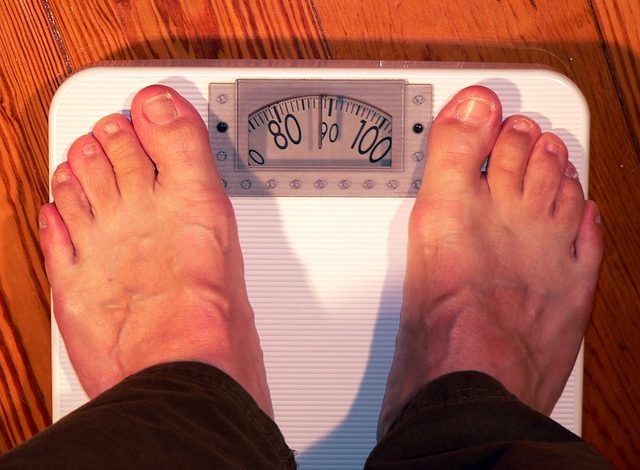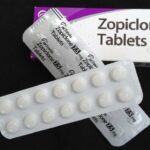Does Effexor Cause Weight Gain or Weight Loss?

In general, side effects are common with almost any medication. What’s less common are side effects that can complicate your recovery from the very condition you’re looking to treat. Case in point: medications that can cause weight gain.
Research suggests a growing number of people take drugs that cause weight gain — most notably, for conditions that are exacerbated by excess weight. Drawing on data from the 2017-2018 National Health and Nutrition Examination Survey (NHANES), a recent study published in Obesity found that 1 in 5 U.S. adults take at least one medication that causes weight gain.
As side effects go, weight gain may not seem like a big deal, especially if you’re treating a life-threatening condition. But in less serious scenarios, the added weight can compromise your overall health. People with obesity are at increased risk for many serious diseases and health conditions, including heart disease, stroke, and death, according to the Centers for Disease Control and Prevention (CDC). Even modest weight gain — we’re talking five to 20 pounds — can have negative health effects, one study shows.
What is Effexor?
Effexor is a brand of venlafaxine, a medication used to treat depression. Venlafaxine extended-release (long-acting) capsules are also used to treat generalized anxiety disorder (GAD; excessive worrying that is difficult to control), social anxiety disorder (extreme fear of interacting with others or performing in front of others that interferes with normal life), and panic disorder (sudden, unexpected attacks of extreme fear and worry about these attacks).
Effexor may also be helpful when prescribed “off-label” for attention-deficit/hyperactivity disorder (ADHD) in adults and children/adolescents, diabetic neuropathy, migraine prevention, hot flashes, obsessive-compulsive disorder (OCD), posttraumatic stress disorder (PTSD), and premenstrual dysphoric disorder (PMDD). “Off-label” means that it hasn’t been approved by the Food and Drug Administration for this condition.
How Effexor works
Venlafaxine the active ingredient in Effexor is in a class of medications called selective serotonin and norepinephrine reuptake inhibitors (SNRIs). It works by increasing the amounts of serotonin and norepinephrine, natural substances in the brain that help maintain mental balance.
How should I take Effexor?
The Effexor dosage your doctor prescribes will depend on several factors. These include:
- the type and severity of the condition you’re using Effexor to treat
- other medical conditions you may have
Typically, your doctor will start you on a low dosage. Then they’ll adjust it over time to reach the amount that’s right for you. Your doctor will ultimately prescribe the smallest dosage that provides the desired effect.
The recommended starting dose for Effexor is 75 mg/day, administered in two or three divided doses, taken with food. Depending on tolerability and the need for further clinical effect, the dose may be increased to 150 mg/day. If needed, the dose should be further increased up to 225 mg/day. When increasing the dose, increments of up to 75 mg/day can be made at intervals of no less than 4 days. In outpatient settings, there was no evidence of the usefulness of doses greater than 225 mg/day for moderately depressed patients, but more severely depressed inpatients responded to a mean dose of 350 mg/day. Certain patients, including more severely depressed patients, may therefore respond more to higher doses, up to a maximum of 375 mg/day, generally in three divided doses.
If you miss a dose of Effexor, take it as soon as you remember. However, if it’s almost time for your next dose, skip the missed dose and take your next dose at its regular time. Never take two doses at once. This will raise your risk of serious side effects.
To help make sure you don’t miss a dose, try setting a reminder on your phone. A medication timer may be useful, too.
Effexor is meant to be used as a long-term treatment. If you and your doctor determine that Effexor is safe and effective for you, you’ll likely take it long-term.
Abruptly stopping treatment with Effexor can cause withdrawal symptoms. These symptoms can include:
• anxiety
• feeling agitated
• confusion
• flu-like symptoms
• insomnia (trouble sleeping)
• shakiness
• diarrhea
• nausea
• vomiting
To avoid withdrawal symptoms, your dosage of Effexor should be tapered (gradually decreased) over several weeks.
Does Effexor Cause Weight Gain?
Effexor is more likely to cause weight loss than to make you gain weight. Studies reveal that more patients 3.5% treated with Effexor experienced weight loss during the clinical trial of the drug than weight gain. However, antidepressants such as Effexor may also cause fluid retention, especially if you are an older adult. Unexplained rapid weight gain may be the result of fluid retention. This leads to fluid swelling, also known as edema, which can cause your limbs, hands, feet, face, or abdomen to look swollen. Water levels can make a person’s weight fluctuate by as much as 2 to 4 pounds in a single day.
Beyond its weight-altering effects, Effexor can also cause mild or serious side effects. The following lists contain some of the key side effects that may occur while taking Effexor. These lists do not include all possible side effects.
For more information on the possible side effects of Effexor, talk with your doctor or pharmacist. They can give you tips on how to deal with any side effects that may be bothersome.
Note: The Food and Drug Association (FDA) tracks the side effects of drugs they have approved. If you would like to report to the FDA a side effect you’ve had with Effexor, you can do so through MedWatch.
More common side effects
The more common side effects of Effexor can include:
• dry mouth
• sleepiness
• loss of appetite
• erectile dysfunction
• abnormal ejaculation
• loss of libido (sex drive) in men and women
• weakness
• dizziness
Other common side effects, explained in more detail below in “Side effect details,” include:
• nausea
• constipation
• sweating
• insomnia (trouble sleeping)
Most of these side effects may go away within a few days or a couple of weeks. If they’re more severe or don’t go away, talk with your doctor or pharmacist.
Serious side effects
Serious side effects from Effexor aren’t common, but they can occur. Call your doctor right away if you have serious side effects. Call 911 if your symptoms feel life-threatening or if you think you’re having a medical emergency.
Serious side effects and their symptoms can include the following:
• Seizures.
• Serotonin syndrome (high levels of serotonin, a chemical in your brain). Symptoms can include:
o anxiety
o shakiness
o fever
o diarrhea
o fast heartbeat
o seizures
• High blood pressure. Symptoms can include:
o headache
o shortness of breath
• Abnormal bleeding. Symptoms can include:
o bruising easily and often
o nosebleeds
o coughing up blood
o producing vomit that looks like coffee grounds
o blood in your stool
o black or tarry stool
• Hyponatremia (low sodium levels). Symptoms can include:
o headache
o trouble focusing
o weakness
o feeling unsteady
o fainting
o seizures
• Lung disease and pneumonia. Symptoms can include:
o shortness of breath
o cough
o pain in your chest
o fever
• Withdrawal symptoms (if you stop taking the drug suddenly).
• Suicidal thoughts and behaviors in children and young adults.





